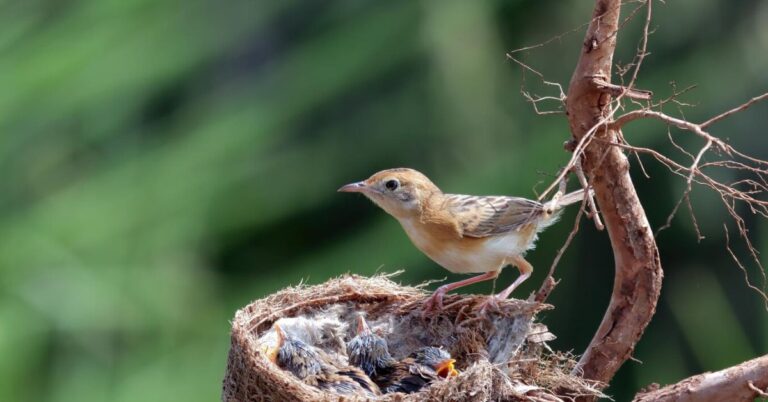When you spot a bird’s nest on your property during the spring or summer months, you might wonder if it’s possible to relocate it, especially if it’s in a tricky spot. Whether you’re concerned about the nest being too close to your home or just curious about how to best handle the situation, it’s essential to know the legal guidelines surrounding bird nests during nesting season in the UK. Let’s break down the laws you need to understand, what your options are, and how to make sure you’re protecting our feathered friends.
The Legal Protections for Birds in the UK
The UK has strong laws in place to protect wild birds and their nests. Under the Wildlife and Countryside Act 1981, it is illegal to intentionally disturb, damage, or destroy an active bird nest. This applies to both the eggs and young birds. This law is in place to ensure that bird populations remain stable and that their natural habitats are protected.
What does “actively nesting” mean? An active nest is one that contains eggs or chicks, or that is being used by the adult birds for breeding. If the nest is active, the law ensures it is off-limits for interference, as disturbing it could lead to the abandonment of the eggs or chicks, which would ultimately harm the birds.
Can You Legally Move a Bird’s Nest?
You might be wondering if it’s ever okay to relocate a bird’s nest. In most cases, the answer is no – it’s illegal to move a nest during the nesting season. This is because disturbing or moving the nest could cause harm to the eggs, chicks, or the parent birds.
However, there are some exceptions. If a nest is in immediate danger (such as in a position where it’s likely to be destroyed or poses a direct health and safety risk, like in a chimney or near an active construction site), you may be able to relocate it. In these cases, you would need to obtain a special licence from the authorities to move the nest legally.
It’s important to note that these exceptions are rare, and the best course of action is always to leave the nest undisturbed, if at all possible. To avoid being in this type of scenario, you need to protect your property with anti-bird solutions. Learn more from www.apexbirdcontrol.uk.
What to Do if You Find an Active Bird Nest on Your Property
If you find a bird nest on your property, it’s important to know the best way to handle the situation. First and foremost, do not disturb the nest. If the birds are actively using it, it’s best to let them complete their breeding cycle, which usually takes around 4 to 6 weeks. During this time, try to minimise any activity around the nest to avoid causing stress to the birds.
If the nest is in a problematic location (e.g., in a gutter, on a ledge, or near a place where it could be easily disturbed), try to make the area as safe as possible. You can create a physical barrier around the nest or avoid using the area altogether until the birds have left. If the nest is causing significant issues, consider contacting a local wildlife rescue or a professional who can offer advice on how to proceed.
If you feel the nest is in a dangerous spot (like near electrical wires or in an area where it could be harmed by a storm), it’s important to consult with the RSPB (Royal Society for the Protection of Birds) or a local wildlife officer. They can help guide you through the process of relocating the nest safely, if necessary.
How to Handle Nesting Birds Safely
When it comes to nesting birds, the key is patience and respect for wildlife laws. If you need to make any changes around the nest, such as trimming trees or bushes, wait until the nesting season has ended. This ensures that the birds aren’t disturbed while they’re breeding and raising their young.
If the nest is in a particularly troublesome place, like inside a chimney or in the middle of a construction project, you may need professional help. In these situations, it’s essential to contact a pest control or wildlife relocation service that is knowledgeable about the law. They can guide you through the necessary steps, making sure that any relocation or intervention complies with wildlife protection regulations.
Remember, it’s also important to educate yourself on how to create a bird-friendly environment that doesn’t interfere with their natural habitats. Providing bird boxes or designated nesting sites away from high-traffic areas can help birds thrive while reducing the likelihood of nests in unwanted places.
Conclusion
Relocating a bird nest in the UK during nesting season is heavily regulated to protect our wildlife. While it may be tempting to move a nest if it’s causing inconvenience, it’s important to understand the legal implications and the potential risks to the birds. By following the laws, seeking expert advice, and being patient, you can ensure that you’re doing your part in safeguarding these essential creatures. If in doubt, always reach out to local authorities or wildlife organisations for guidance.

